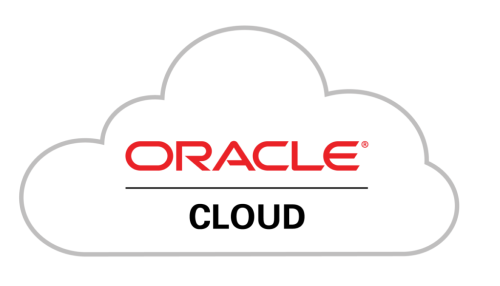Overview of Oracle Cloud
What is Oracle Cloud
Oracle Cloud is a suite of cloud-based services offered by Oracle Corporation, encompassing a wide range of infrastructure, platform, and application solutions. Designed to support businesses across industries, Oracle Cloud provides the resources needed to build, deploy, and scale applications and manage data on a secure, high-performance platform. Oracle Cloud is used for everything from hosting enterprise applications and databases to supporting data analytics, artificial intelligence (AI), machine learning (ML), and advanced business applications. Its architecture is known for a focus on security, reliability, and performance, and it supports both hybrid and multi-cloud environments.

Key Services and Categories within Oracle Cloud
- OCI is Oracle’s cloud infrastructure platform, offering foundational cloud services such as compute, storage, networking, and database options. OCI supports both virtualized and bare metal instances, enabling organizations to choose the performance and control that best meets their needs.
- Compute: Provides scalable virtual machines and bare metal instances for running applications and workloads.
- Storage: Offers various storage options, including block storage, object storage, and file storage, designed to meet diverse data needs.
- Networking: Includes networking services like virtual cloud networks (VCNs), load balancing, and private connections to ensure secure and optimized data transfer.
- Oracle Autonomous Database: A self-managing database service that automates routine management tasks, such as tuning and patching, and includes options like Autonomous Data Warehouse and Autonomous Transaction Processing.
- Security: Comprehensive security features like identity and access management (IAM), encryption, and Oracle Cloud Guard for real-time threat detection and response.
- Oracle PaaS provides services to develop, deploy, and integrate applications, catering to developers, IT teams, and business users.
- Application Development: Includes tools for building applications with a wide array of languages and frameworks (Java, Python, etc.) as well as low-code solutions.
- Data Management: Services to manage data beyond databases, such as analytics, big data processing, and data lake solutions.
- Integration and Process Automation: Enables integration of on-premises and cloud applications, along with process automation tools for streamlining workflows.
- Analytics and AI/ML: Offers machine learning, data science, and analytics tools to help uncover insights and apply AI to their operations.
- Blockchain and IoT: Provides blockchain-as-a-service and Internet of Things (IoT) management for advanced applications in secure data transfer and connected devices.
- Oracle SaaS includes a suite of applications across various functional areas, designed to streamline business processes. At Tulane, we are implementing the following:
- ERP (Enterprise Resource Planning): Manages core financials, procurement, project management, and supply chain operations.
- HCM (Human Capital Management): Supports HR processes like recruiting, payroll, talent management, and workforce planning.
- EPM (Enterprise Performance Management): Aids in budgeting, forecasting, and financial close processes.
Key Benefits of Oracle Cloud
Oracle Cloud is known for high-performance computing, particularly for large and demanding applications like databases and ERP systems, and it scales easily to support enterprise-level workloads.
Built with a security-first approach, Oracle Cloud includes encryption, multi-factor authentication, role-based access control, and compliance with international standards (like GDPR and HIPAA).
Through services like Oracle Autonomous Database and Oracle Digital Assistant, Oracle Cloud automates tasks, optimizes processes, and helps businesses unlock value from AI and machine learning.
Oracle Cloud integrates with on-premises systems and other cloud providers, enabling businesses to build hybrid and multi-cloud solutions. Oracle’s partnerships with Microsoft Azure and other cloud providers further expand its compatibility.
Oracle Cloud’s self-managing services and efficient infrastructure can help reduce operational costs compared to traditional on-premises and some other cloud solutions.
Oracle Cloud’s SaaS applications provide end-to-end support for core business functions, ensuring integration and consistency across finance, HR, supply chain, and customer management.
Common Use Cases for Oracle Cloud
Many organizations use Oracle Cloud to run ERP, HCM, and other essential applications, benefiting from the platform’s performance and security.
Oracle Autonomous Database on OCI is popular for organizations that require high-performance, reliable, and automated data management solutions.
Organizations leverage Oracle Cloud’s AI and ML tools for data science, predictive analytics, and machine learning applications.
Organizations with on-premises systems use Oracle Cloud for hybrid setups, integrating their existing infrastructure with cloud resources.
With global data centers, Oracle Cloud offers reliable disaster recovery and backup solutions to safeguard business continuity.
